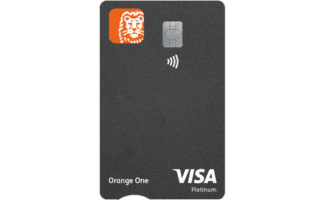How to Avoid Credit Card Debt: Strategies for Australians

Strategies for Effective Credit Card Management
Credit card usage can be a double-edged sword, particularly in Australia, where consumer debt levels have reached significant proportions. With proper management, credit cards can offer convenience and rewards, but mismanagement can lead to crippling debt. Understanding effective credit card strategies is paramount for maintaining financial well-being. Here are critical techniques to navigate credit card pitfalls:
- Set a Budget: One of the fundamental steps in managing any financial undertaking is to establish a monthly budget. This budget should encompass all income sources and delineate fixed and variable expenses. By doing so, individuals can track their spending more effectively, allowing them to identify non-essential expenditures. For instance, if you find you are consistently overspending on dining out or entertainment, reallocating those funds to savings or debt repayment can have a substantial impact.
- Pay More Than the Minimum: Credit card companies often encourage minimum payments, which can lead to extended debt repayment periods and increased interest costs. By committing to paying more than the minimum, you substantially reduce the principal faster, leading to lower overall interest charges. For example, if your credit card balance is $5,000 with a 20% interest rate and you only pay the minimum, it could take over ten years to pay off that debt; however, if you doubled that payment, you could eliminate it within just two years.
- Avoid Impulse Purchases: Impulse buying can significantly derail financial goals. It is advisable to implement a waiting period for non-essential purchases—typically 24 to 48 hours. This method allows you to evaluate the importance of the item and its impact on your financial situation, thereby reducing spontaneous and potentially regrettable purchases.
Understanding Credit Card Features
It is equally vital to comprehend the various features and potential pitfalls of credit cards. Some aspects might be tempting but could lead to overspending:
- Interest Rates: Not all credit cards are created equal. It is essential to compare the interest rates of different cards and consider those with lower rates or attractive 0% introductory offers. According to recent Australian financial reports, a mere 1% difference in interest can significantly affect the amount paid over time.
- Fees: Often overlooked, numerous fees can accompany credit cards, such as annual fees, late payment penalties, and overseas transaction charges. It is advisable to scrutinize these fees and select a card that aligns with your spending habits. For example, if you frequently travel abroad, select a card with no international transaction fees.
- Rewards Programs: Credit card rewards can be enticing, offering points, cashback, or travel perks. However, whether these rewards justify increased spending is critical to evaluate. Some consumers might be tempted to spend more simply to earn points, which can be counterproductive to their overall financial health.
By diligently applying these strategies and seeking a thorough understanding of credit card mechanisms, Australians can significantly mitigate the risk of accumulating credit card debt. Ultimately, a proactive approach to financial management is essential for achieving long-term economic stability and security in an increasingly complex financial environment.
SEE ALSO: Click here to read another article
Proactive Financial Habits
To effectively manage credit card debt, Australians must cultivate proactive financial habits that promote discipline and accountability. Implementing these habits can significantly reduce the likelihood of falling into debt while also enhancing overall financial literacy. Here are some essential practices to consider:
- Regularly Monitor Your Statements: Keeping a close eye on monthly statements helps individuals understand their spending patterns and track progress toward financial goals. Regular monitoring can also alert you to unauthorized transactions or billing errors, enabling prompt resolution. Many banks in Australia offer real-time notifications for transactions, allowing users to stay informed about their spending instantaneously.
- Establish an Emergency Fund: Having an emergency fund is critical for financial security. This fund acts as a buffer against unforeseen expenses, such as car repairs or medical bills, that might otherwise necessitate credit card use. Financial experts recommend saving at least three to six months’ worth of living expenses. By doing this, Australians can avoid relying on credit cards during financial emergencies and, thus, mitigate the risk of accruing debt.
- Use Envelopes for Discretionary Spending: The envelope budgeting method, where cash is allocated to specific spending categories, can be an effective way to control discretionary spending. Set aside a fixed cash amount for categories like dining, entertainment, or personal shopping. Once this cash is spent, no further purchases in that category are allowed until the next budgeting period, fostering discipline and reducing unnecessary credit card charges.
Creating a Payment Strategy
Formulating a structured payment strategy is indispensable for maintaining credit health and avoiding debt. Here are several approaches that reputable financial advisors suggest:
- Implement the Snowball or Avalanche Method: Both methods offer effective pathways for repaying multiple credit cards. The snowball method entails paying off the smallest debt first to gain momentum, while the avalanche method focuses on the highest-interest debt to minimize overall interest payments. According to the Financial Literacy Foundation in Australia, identifying the most suitable method can make debt repayment feel less daunting and more manageable.
- Set Up Automatic Payments: Enrolling in automatic payments for at least the minimum amount can prevent late fees and maintain a positive credit score. However, be cautious to balance this with sufficient funds in your bank account to avoid overdraft fees. Automatically scheduling payments for due dates ensures that obligations are met consistently, leaving less room for error.
These proactive financial habits, combined with a strategic payment approach, empower Australians to take control of their credit card usage and minimize the risk of debt accumulation. Establishing a strong financial foundation will not only aid in avoiding credit card pitfalls but also foster long-term financial stability and well-being.
SEE ALSO: Click here to read another article
Understanding Credit Card Terms and Fees
In order to avoid falling into credit card debt, it is imperative for Australians to fully understand the terms and conditions associated with their credit cards. Knowledge of the fees, interest rates, and rewards can aid in making informed financial decisions. Here are pivotal aspects to consider:
- Comprehend Interest Rates: Credit card interest rates can vary significantly among different cards. The average credit card interest rate in Australia hovers around 17-20%, which can quickly lead to substantial debt if balances are not paid in full each month. Understanding how interest is calculated—whether through daily compounding or other methods—can help cardholders avoid accruing high charges.
- Be Mindful of Annual Fees: Many credit cards in Australia charge annual fees that can add up over time. While some cards offer benefits such as rewards points or travel insurance, they may not be worth the cost if the cardholder does not maximise these perks. Evaluating the value of the card relative to its fees can lead to better financial choices. It is advisable to compare several cards and choose one that aligns with personal spending habits.
- Identify Hidden Fees: In addition to annual fees, there are often other hidden costs associated with credit cards, such as late payment fees, cash advance fees, and foreign transaction fees. For Australians traveling overseas, being unaware of foreign transaction fees can lead to unexpected costs while abroad. Familiarising oneself with these fees can assist in making smarter financial decisions while utilising credit cards.
Leveraging Credit Card Rewards Wisely
While credit cards offer rewards and incentives, it is essential to leverage these benefits responsibly to avoid falling into the trap of overspending. Here are strategies to utilise credit card rewards effectively:
- Choose the Right Rewards Program: Different credit cards offer various rewards schemes, ranging from cashback to travel points. Australians should select a program that aligns with their lifestyle and spending habits. For instance, frequent travelers may benefit from cards that offer airline miles, whereas others who prefer cashback might find better value in cash reward cards.
- Avoid Overspending for Points: It is crucial to remember that the primary aim of using a credit card should be to manage expenses effectively, not to accumulate rewards. Overspending merely to earn points can lead to increased debt. Therefore, Australians should exercise restraint when utilising their cards for non-essential purchases simply to benefit from rewards.
- Regularly Review Reward Status: Keeping track of accrued rewards and points ensures that cardholders utilise them before expiration, thereby maximising the card’s benefits. Some programs have intricacies, such as a point expiration date or thresholds for redeeming rewards. Regularly reviewing this information can help ensure that rewards are not left unredeemed.
By understanding credit card terms, fees, and rewards, Australians can navigate credit card usage with greater awareness and confidence. These factors are instrumental in developing a financial approach that not only mitigates the risk of debt but also enables consumers to take full advantage of the benefits that credit cards can provide.
CHECK OUT: Click here to explore more
Final Thoughts on Credit Card Management
In conclusion, effectively managing credit cards is essential for Australians seeking to avoid falling into debt. By understanding credit card terms, including interest rates and annual fees, individuals are better equipped to make informed decisions that protect their financial wellbeing. Moreover, adopting responsible spending practices, such as avoiding overspending for rewards, not only safeguards one’s credit rating but also ensures that the benefits of credit cards enhance rather than hinder personal finance.
It is crucial for Australians to regularly review their credit card usage, monitoring not just rewards accrued but also understanding hidden fees that may arise. By comparing different credit card options, consumers can select cards that best suit their spending habits and lifestyle, further bolstering their financial strategy. Additionally, setting a budget that prioritises the repayment of the credit card balance monthly can significantly reduce the risk of incurring high-interest debt.
Ultimately, a proactive approach involving education, regular monitoring, and strategic use of rewards can empower Australians to enjoy the benefits of credit cards without the burden of debt. By implementing these strategies, individuals can navigate their financial landscape with confidence, ensuring that credit cards serve as tools for empowerment rather than sources of financial strain.

Beatriz Johnson is a seasoned financial analyst and writer with a passion for simplifying the complexities of economics and finance. With over a decade of experience in the industry, she specializes in topics like personal finance, investment strategies, and global economic trends. Through her work, Beatriz empowers readers to make informed financial decisions and stay ahead in the ever-changing economic landscape.





